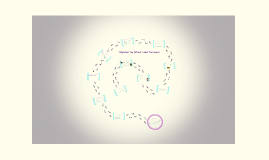

Furthermore, he realizes that his people need a great king, not a great hero, and he makes that happen. He also recognizes that his son’s greatness lies in his ability to govern, a role for which the wise Mentor has thoroughly prepared him in his father’s long absence. Ulysses recognizes that his greatness lies in his achievements as a warrior and an adventurer, as the hero Odysseus. Ulysses thus asserts both his son’s unique manhood and admits that he lacks his son’s kingly skills and is thus less worthy to rule.

Even the apparent attack on Telemachus’s manhood, is actually praise which pushes the son out from under the father’s shadow. As he abdicates, he acknowledges “my son, mine own Telemachus” and catalogues his abilities as king in seemingly passive terms: “slow prudence,” “soft degrees,” “blameless,” “common duties,” “decent,” “offices of tenderness.” He even seems to suggest that his son isn’t, and never will be, the man his father is: “He works his work, I mine.” Not only is Ulysses proclaiming Telemachus as his true and rightful heir but he also is arguing that his son has all the skills required of a good king. In the second stanza, Ulysses seems to be condemning Telemachus with faint praise. Placed between these two stanzas, the second stanza appears to be insulting as Telemachus is portrayed as being less worthy than his father, but is it truly so? I assert that Ulysses is actually praising Telemachus and presenting him to the Ithacans as the better king in what is both said and unsaid. In the third stanza (lines 44-70), Ulysses exhorts his old crew to join him as he abandons Ithaca and enthusiastically sets off to be Odysseus once more. In the first stanza (lines 1-32), the brave and clever Ulysses is an aging king grown dissatisfied with his life and longing for the adventures of his prime which he recounts.

This stanza is made more jarring as it is set between two longer, much more exuberant stanzas in which Ulysses portrays himself as the larger than life character he is. In the second stanza (lines 33-43) of his poem, Alfred Tennyson has Ulysses, in an aside, describe his son, Telemachus, in rather mundane and bland terms. Van, written on 15 November 2007 at The University of North Carolina at Greensboro A Close Reading of Alfred Tennyson’s “Ulysses” | Site Map | Site Index | Search Engine | Express Lane |Ī short response assignment for English 212, Major British Authors: Romantic to Modern, a sophomore British literature survey course taught by Dr. | Websurfing Safari | Hate Mail | Connections | Trophy Case | Mascot | Guestbook Central | E-mail | | Homepage | What's New | Autobiography | Publications | Affiliations | Gratifications | Irritations | Photo Album | A Close Reading of Alfred Tennyson’s “Ulysses”


 0 kommentar(er)
0 kommentar(er)
